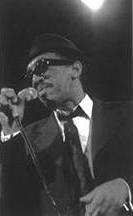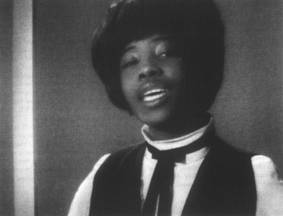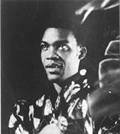|
REGGAE INNA INGLA
So just what has Britain, this cold European island, got to do with a musical style born in the hot Caribbean island of Jamaica? For those who think
British reggae is a contradiction in terms, or that the only reggae
worth talking about comes from Jamaica, check this claim out; without
Britain, there wouldn't be reggae!
Alright, that's an exaggeration. However, reggae
could have ended up as just one of the many little-known world music
styles, if it wasn't for the British influence. How can one make such
a seemingly contentious claim?
Between the late '50s and the
very early '60s, when Jamaican record producers such as Coxsone Dodd,
Duke Reid, Chris Blackwell and Prince Buster began making records, the
market was essentially a local one. Because of very low session fees,
no restrictive copyright law or union rules, the Jamaican recording
industry literally exploded with a terrific turnover of new releases.
It doesn't take much to see that all this activity could not have been
sustained solely by the local market. It probably would have imploded
upon itself, had the producers not found a market in Britain.
The British dimension
Let history unfold...
The '40s
At the end of the Second World War, Britain's
economy was in ruins, compounded by a serious deficit in its Labour
force. The British Government enticed people from the Caribbean from
the late '40s onwards to come to the 'Mother Country' to make up the
labour shortfall. Jamaicans formed the overwhelming majority of the
Caribbean contingent that kept coming right through to the early '60s,
when anti-immigration laws began to take effect.
|
The '50s
The first wave of Jamaican (and other
Caribbean) immigrants soon discovered that the 'Mother Country'
was cold in more ways than one. Discriminated against and denied
much access, they mostly relied on themselves for things like
housing and entertainment. Shebeens or blues, which were parties
or clubs held in domestic properties, offered entertaining distraction.
Naturally the music played was the popular Jamaican music of the
day.
In 1959 Melodisc, an independent label
that had been releasing specialist music such as calypso and jazz
since the mid-'40s, became the first to begin releasing Jamaican
music. All the key Jamaican producers such as Duke Reid and Prince
Buster had their first international releases on Melodisc's Blue
Beat label.
The '60s
Ska became very popular in the early
'60s, and Blue Beat was so successful selling it that its name
became an alternative term for the music. Prince Buster was one
of the biggest Blue Beat artists, scoring many underground hits,
and eventually going top 20 in 1967 with 'Al Capone'. The label
also had success with British-recorded material by Jamaican artists
such as Laurel Aitken and Derrick Morgan, who had moved to Britain.
Another Jamaican music veteran who had relocated
to Britain was Island Records founder Chris Blackwell. His production
of 'My Boy Lollipop' by Millie Small, recorded in London, was the
first ska record to make a huge international impression. It went
all the way to the number two position in both the British and American
pop charts in 1964.
It was the young, stylish white youth
group known as mods who helped propel ska
music outside of its black confines. Though American R&B was
their favourite music, a faction took to ska and the Rude
Boy fashions. And in the late '60s, another white group known
as skinheads adopted reggae.
There were some beginnings of a British
reggae infrastructure by the mid-'60s. Initially, outlets such
as black hairdressers and markets used by Caribbean people were
often the places to buy the records. One of the earliest specialist
shops, Peckings's Studio 1 in West London, was run by Daddy Peckings,
who came to Britain in 1960 to set up an outlet for Coxsone Dodd's
prolific Studio One releases.
Also, sound systems began operating in
London and towns with sizeable black populations such as Birmingham,
Bristol and Manchester. Duke Vin operated a sound
system from Ladbroke Grove, the very multi-cultural West London
area which gave birth to the Notting Hill Carnival in the late
'60s.
In addition to Island's Blackwell, the
other record label proprietors who pushed reggae music from the
mid-'60s, helping to turn it into a popular style across the world,
included: producer Sonny Robert Roberts, owner of Planitone (later
becoming Orbitone); Lee Gopthal, a businessman who took over the
Trojan label, in which Blackwell initially had a stake; and the
Palmer brothers, who run Pama Records, which changed its name
to Jet Star in the late '70s.
All the key Jamaican producers dealt
with one or more of these men. Indeed, whilst much is made of
Blackwell's signing of Bob
Marley & The Wailers to the Island label in 1972, Island
had been releasing Marley records since 1963 via its licensing
deals with Marley producers such as Leslie Kong ('Judge Not')
and Coxsone ('Simmer Down').
However, it was Trojan which continuously
turned reggae into pop hits, including the first British chart-topper
- Desmond Dekker's 'Israelites'. Dekker, along with other Jamaican
artists like Jimmy Cliff, subsequently based themselves in Britain
to further their career. Probably the first British-made reggae
to dent the pop charts was 'Rudi's In Love', a top 25 hit in 1968
for Midlands-based group The Locomotive. Among the earliest credible
local reggae groups were The Cimarons. They, like many others, were
often used as backing singers for visiting Jamaican artists, whilst
British reggae found its own voice. The next decade was the turning
point.
>
| 1 | 2 |
3 | |
|



